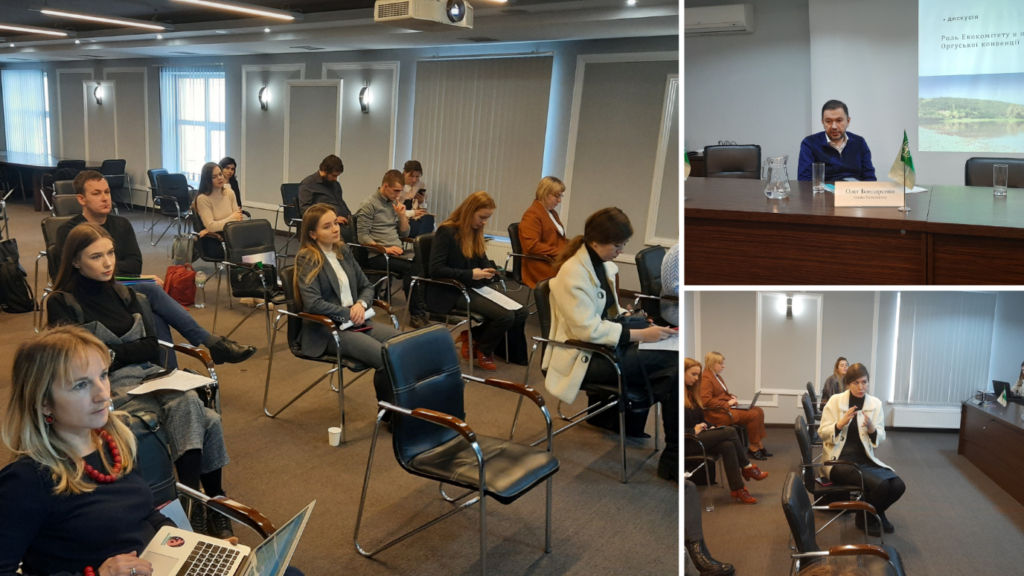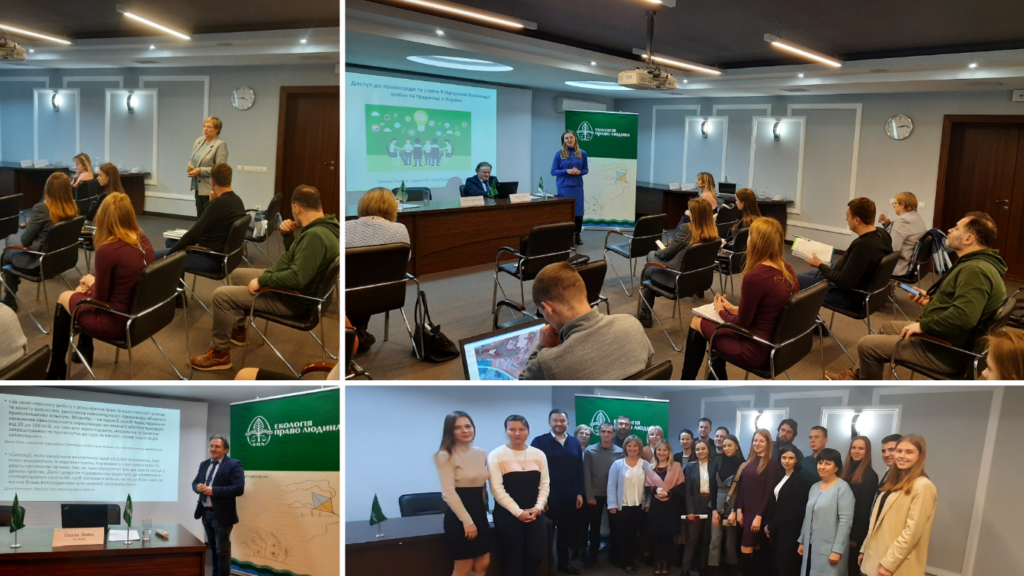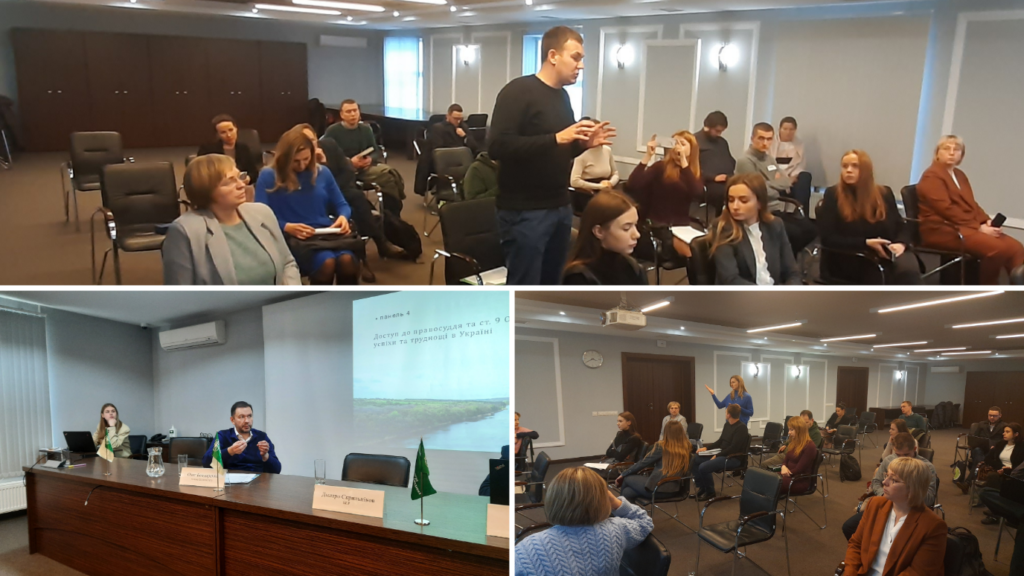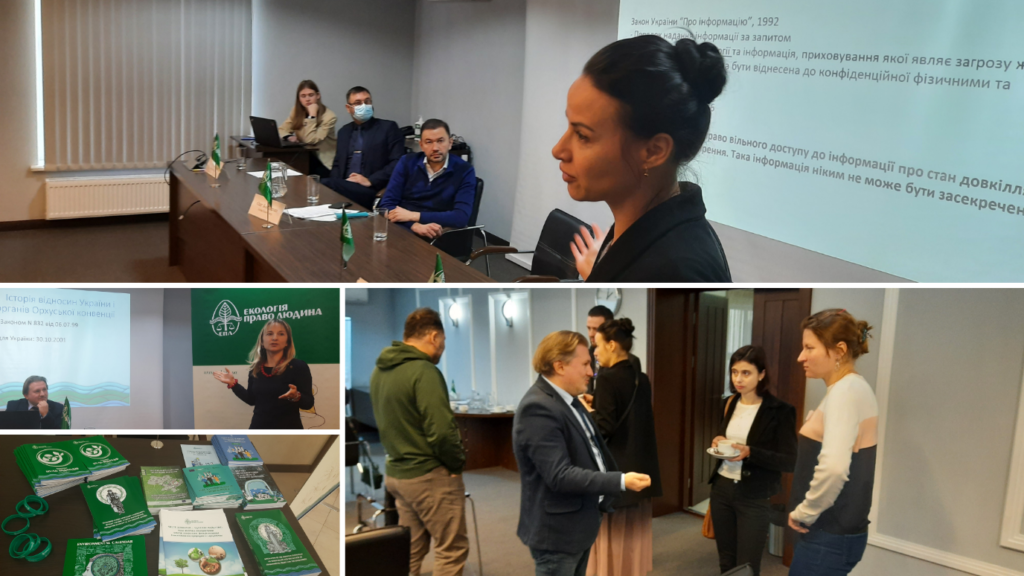Achievements and gaps in the implementation of environmental rights of citizens were discussed in Lviv
In the autumn of 2001, the Aarhus Convention of the United Nations Economic Commission for Europe on access to information, public participation in decision-making and access to justice in environmental matters entered into force. On December 21, representatives of the authorities and the public spoke about how its provisions are being implemented in our country during the round table discussion entitiled “20 years of eco-democracy: Ukraine’s progress.”
The key conclusion reached by the participants of the discussion is that despite the existence of various specific problems, citizens are increasingly using the tools of eco-democracy to protect their rights. On the positive side, in recent years the country has enacted several European laws in spirit and content, which expand the list of opportunities for citizens to influence government decisions or business intentions to conduct various economic activities.
According to Oleh Bondarenko, Chairman of the Parliamentary Committee on Environmental Policy and Nature Management, the Verkhovna Rada is preparing to review the draft law # 5339 (on amendments to some laws to improve the mechanism for regulating emissions of pollutants into the air). “In a separate article, we envisage strengthening public participation in the process of issuing emission permits at the stage of preparation of documents. The draft law includes the provision that violation of the procedure of public participation or the procedure of taking into account positions can be the basis for declining a permit”, stressed Mr. Bondarenko.
The Chairman of the Ecocommittee also stressed that the Committee plans to include similar provisions in its other legislative initiatives in order to fully regulate environmental rights (access to information, participation in decision-making and access to justice) in the legislation of Ukraine.
Lawyers of International charitable organization “Environment-People-Law” Yelyzaveta Aleksyeyeva and Olha Melen-Zabramna, Halyna Levina from NGO “EcoPravo-Kyiv” made a detailed review of legislative gaps in the three pillars of the Aarhus Convention and expressed hope for constructive cooperation with the parliamentary environmental committee.
Moreover, Serhiy Vykhryst (EU project expert) reminded that at one time, in 2016-17, the adoption of the laws “On Environmental Impact Assessment” and “On Strategic Environmental Assessment” was associated by many with the preconditions for the European Union visa-free travel for Ukrainian citizens. “Currently, we have the challenges of industrial visa-free travel, the European Green Deal, and so on. Therefore, the relevance of the instruments of “horizontal” EU legislation and the provisions of the Aarhus Convention, which underlie this legislation, is only growing,” he said.
According to Dmytro Skrylnikov (NGO “Bureau of Environmental Investigations”), institutions of democracy and mechanisms of dialogue between business, government and the public have been formed in Ukraine for a long time. “However, now that the public has real opportunities to influence environmentally significant decisions, there are those who do not like it,” he said. – Along with the issue of realization of the rights to access to environmental information, public participation and access to justice, provided by the Aarhus Convention, the issues of persecution of persons defending their environmental rights have become equally important. These persecutions take various forms, from discrediting and threats to prosecution and even outright violence,” Mr. Skrylnikov said.
Round table organizers:
– Verkhovna Rada Committee on Environmental Policy and Nature Management,
– International Charitable Organization “Environment-People-Law“.
***
For reference
The purpose of the Aarhus Convention is to promote the protection of the right of every person of present and future generations to live in an environment conducive to his or her health and well-being. Each State Party guarantees the right of access to information, public participation in decision-making and access to justice in environmental matters. Ukraine was one of the first states to sign and ratify the Convention.





